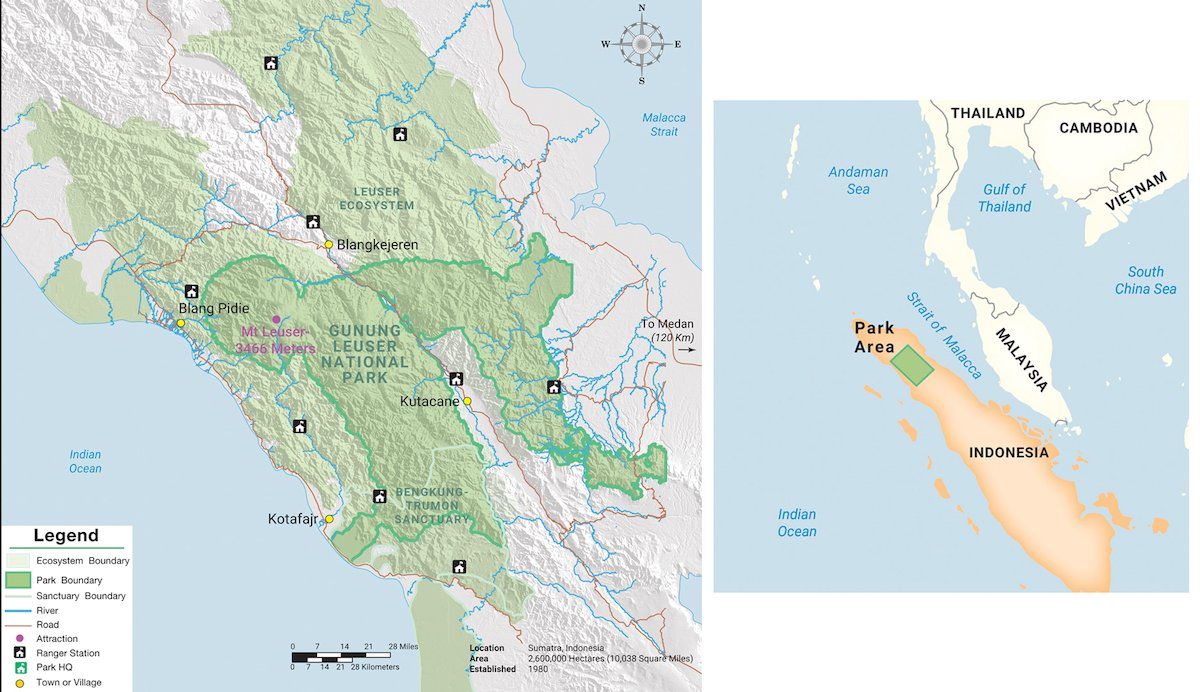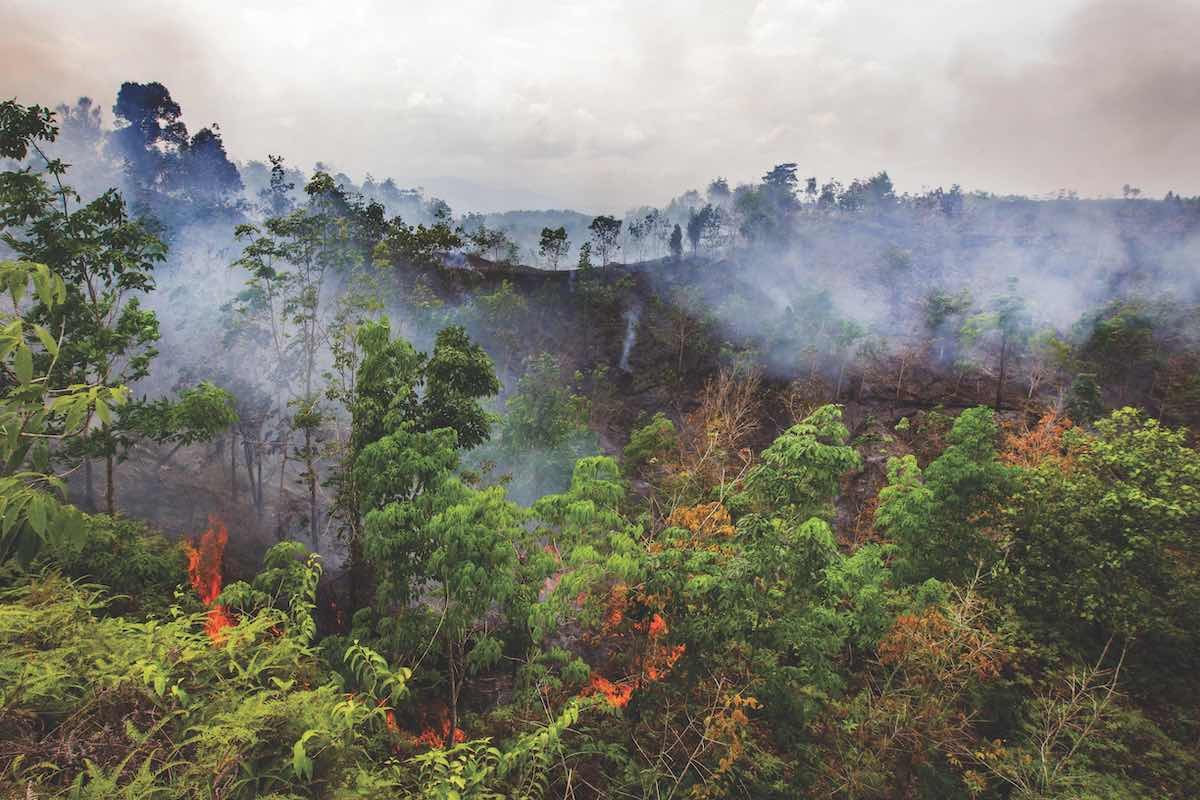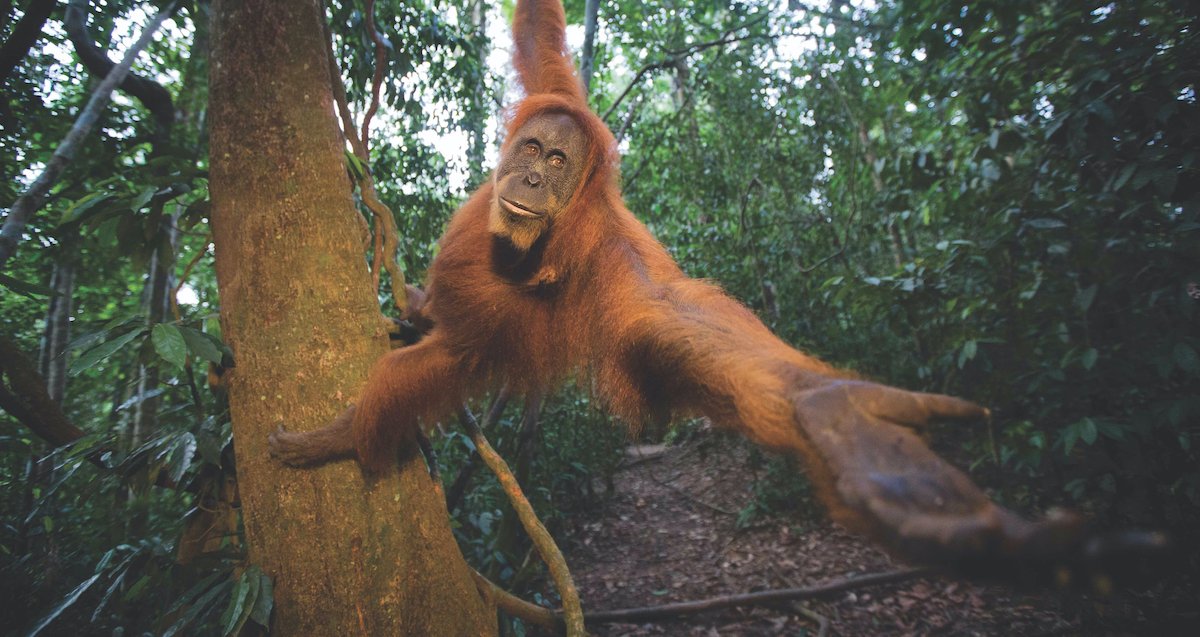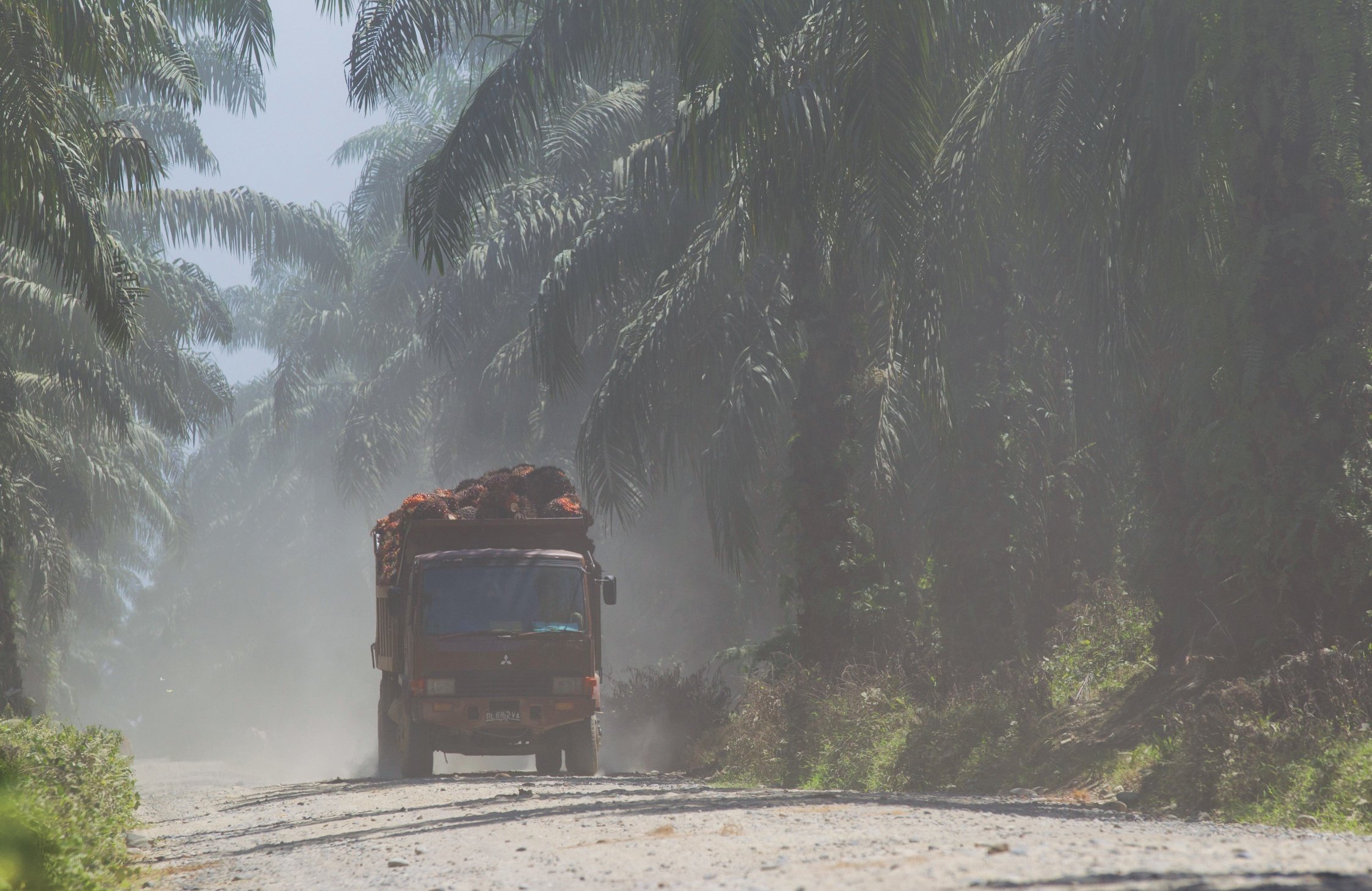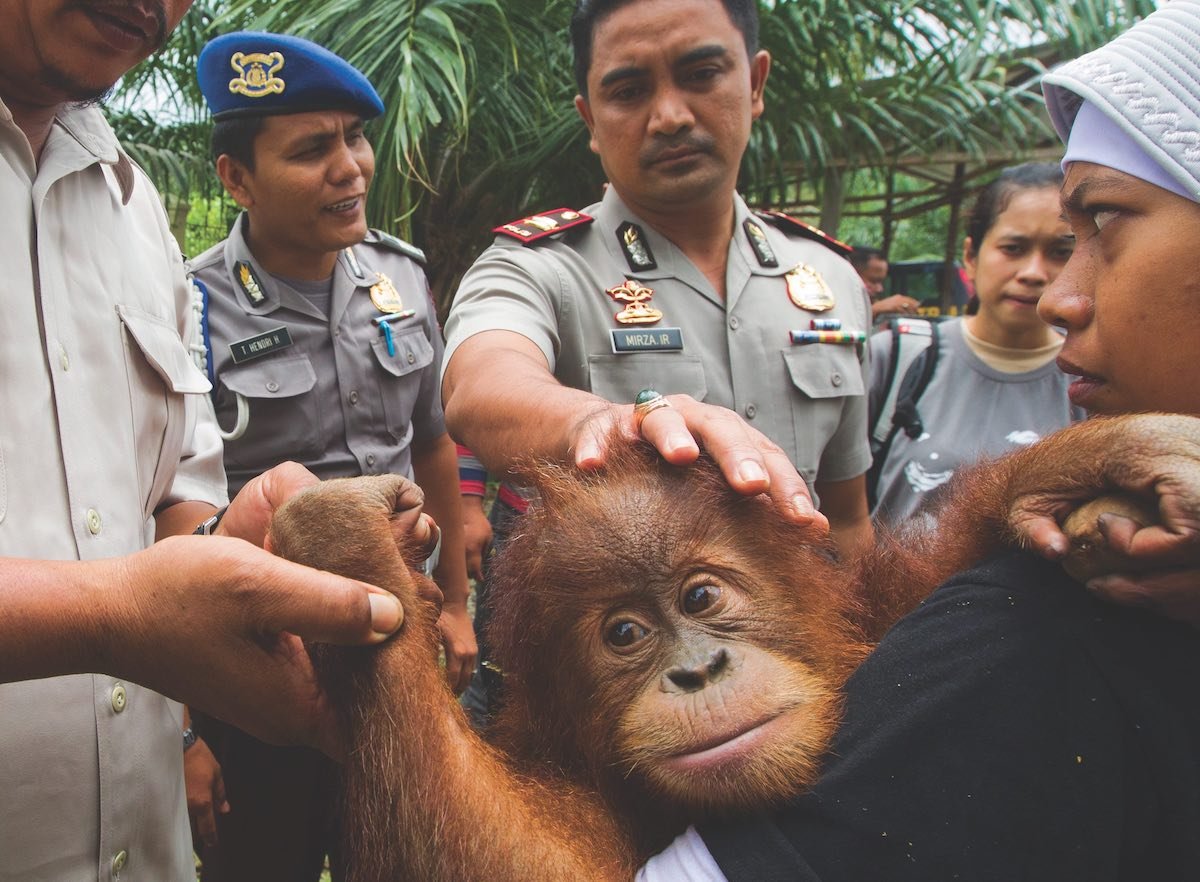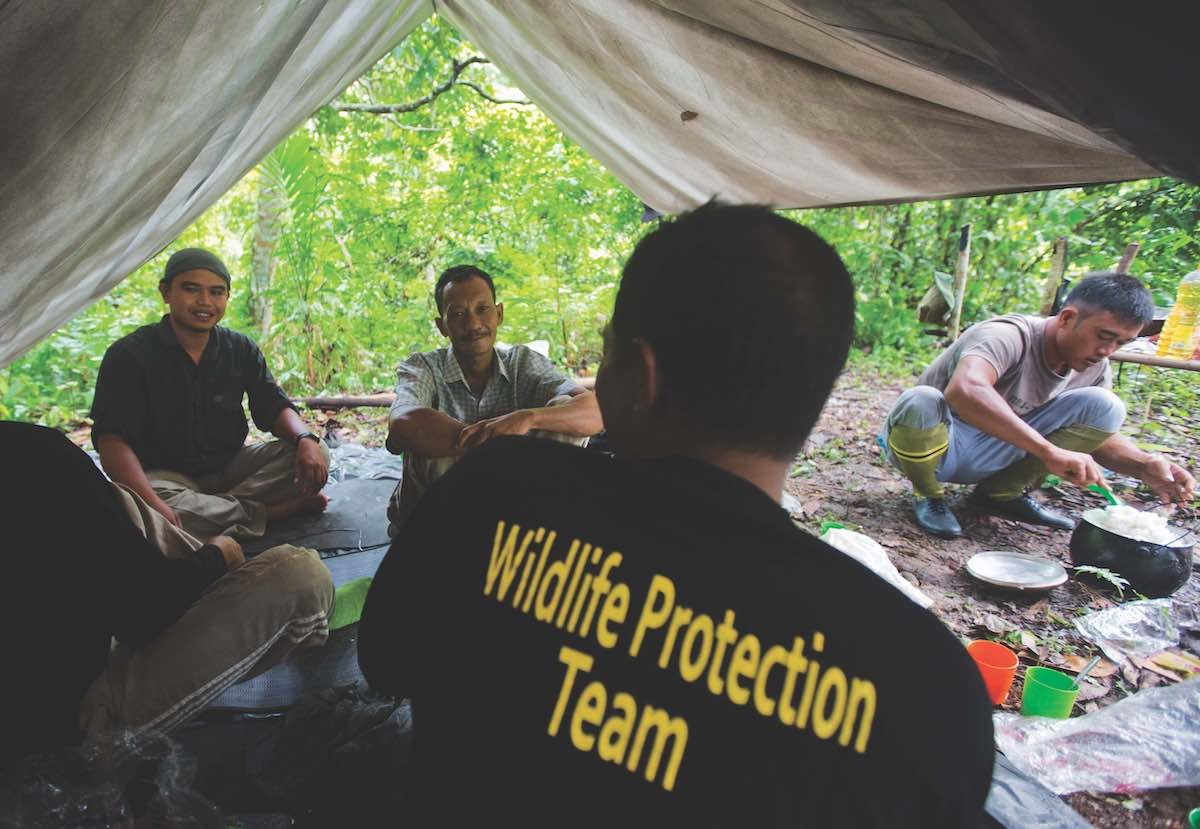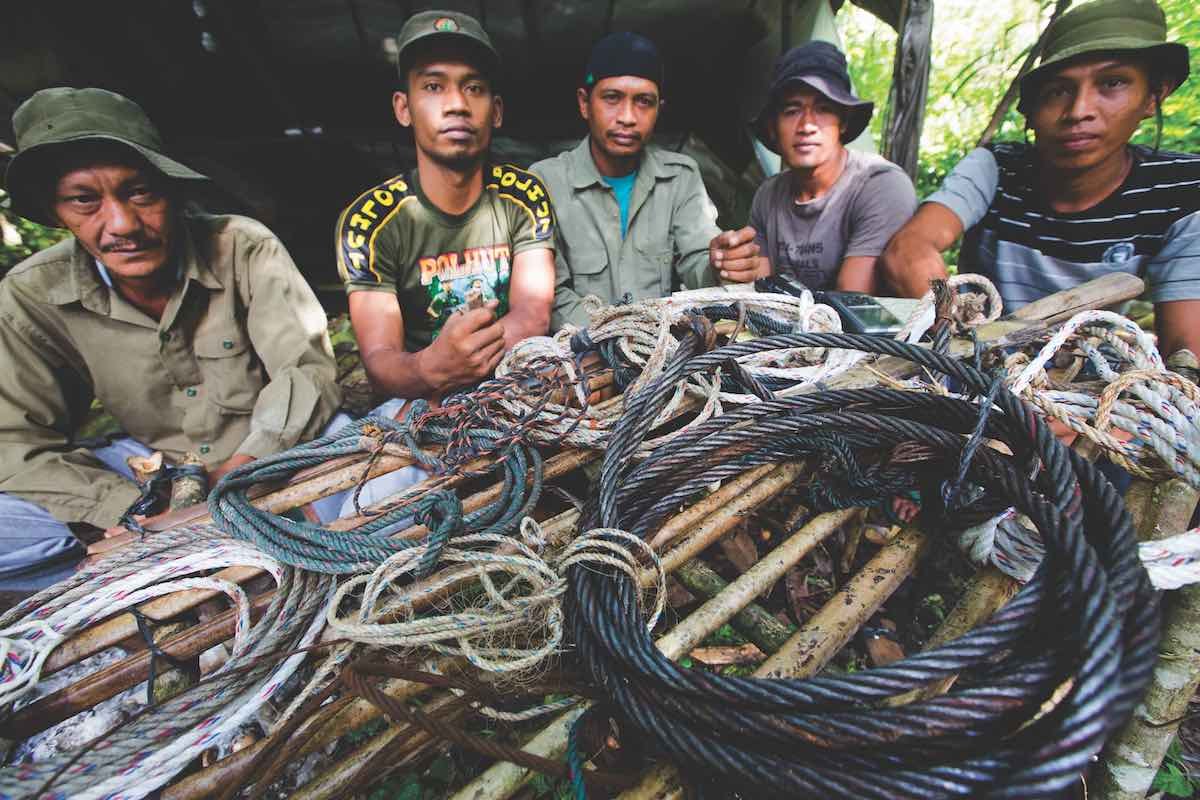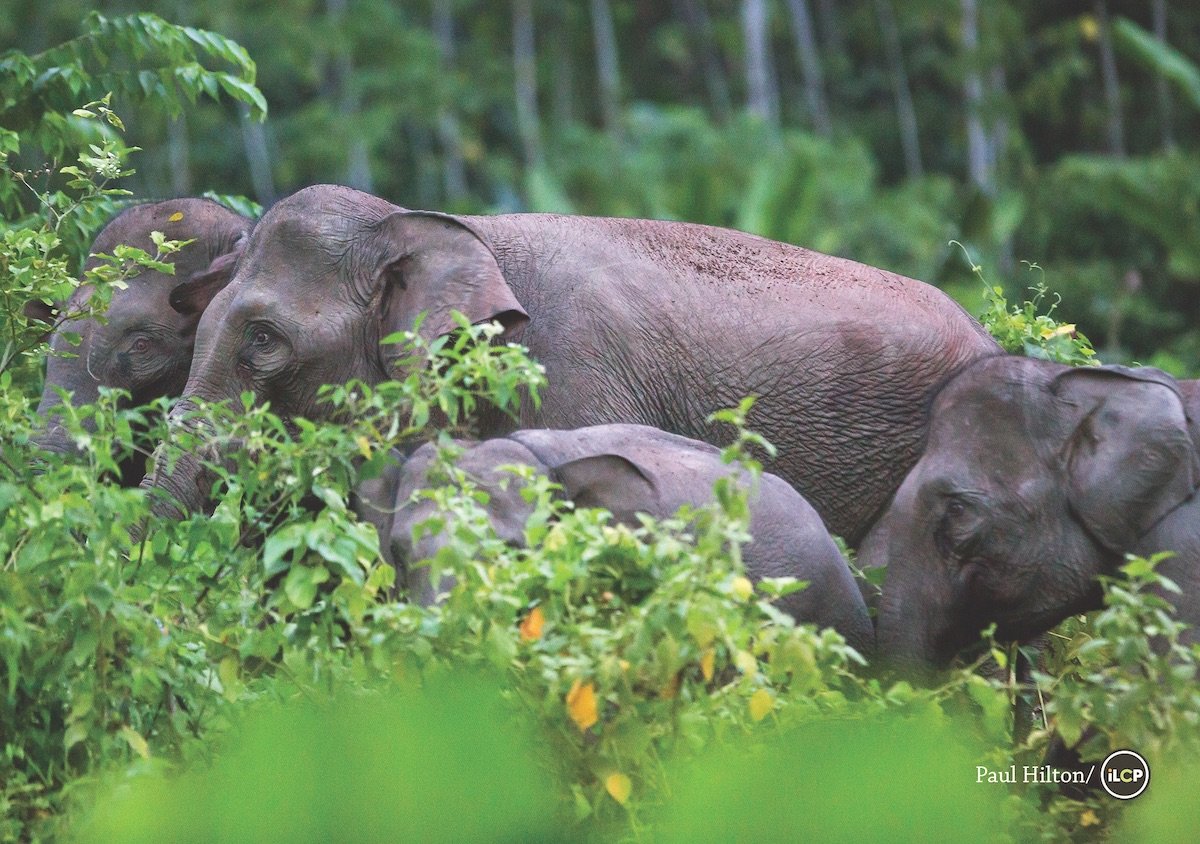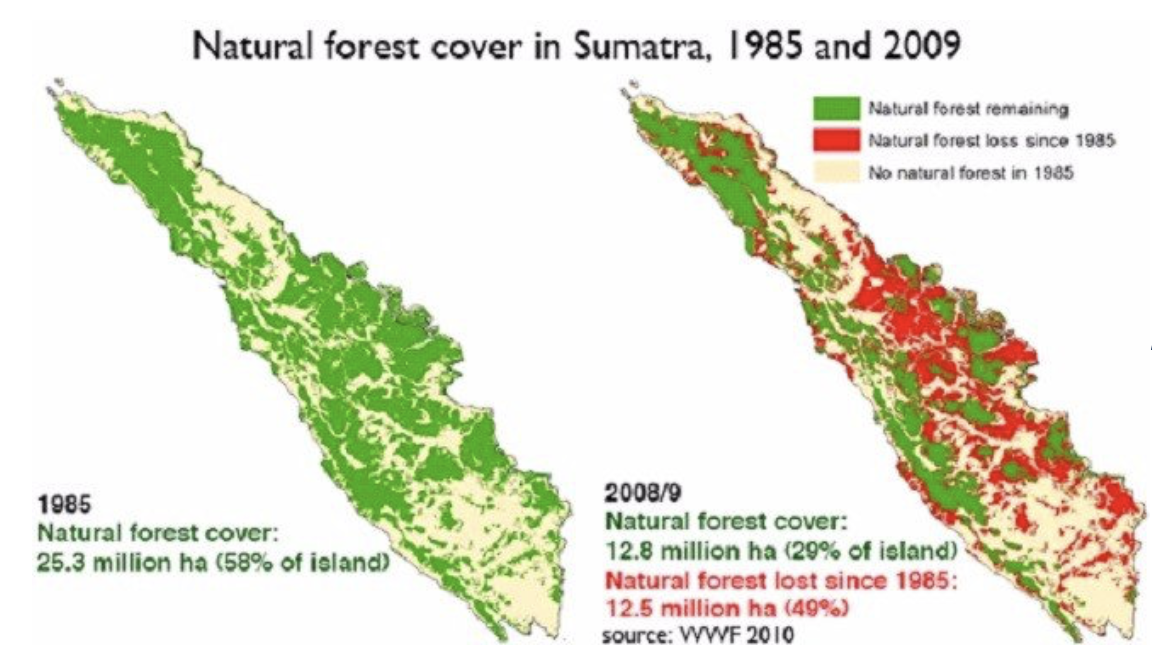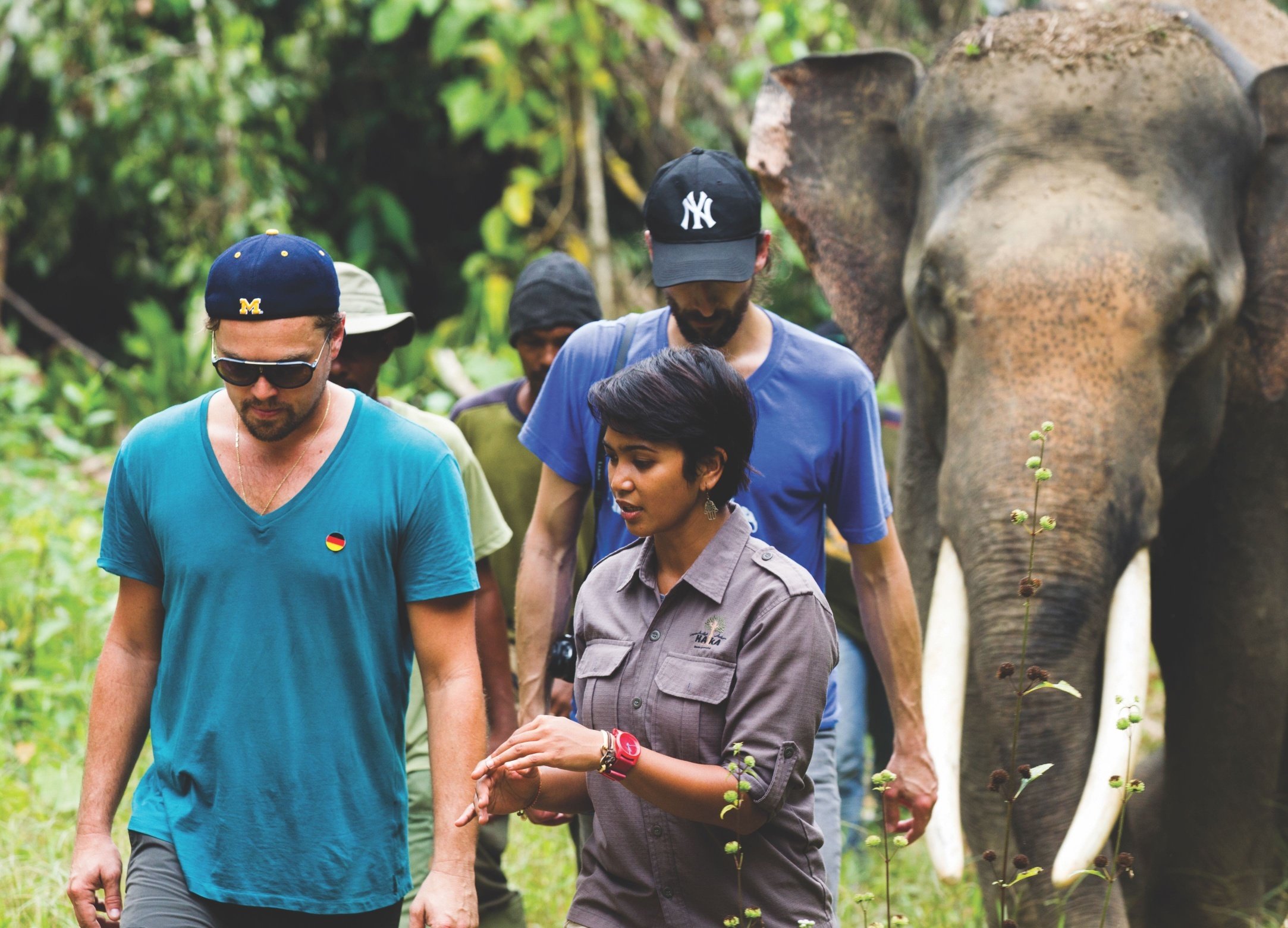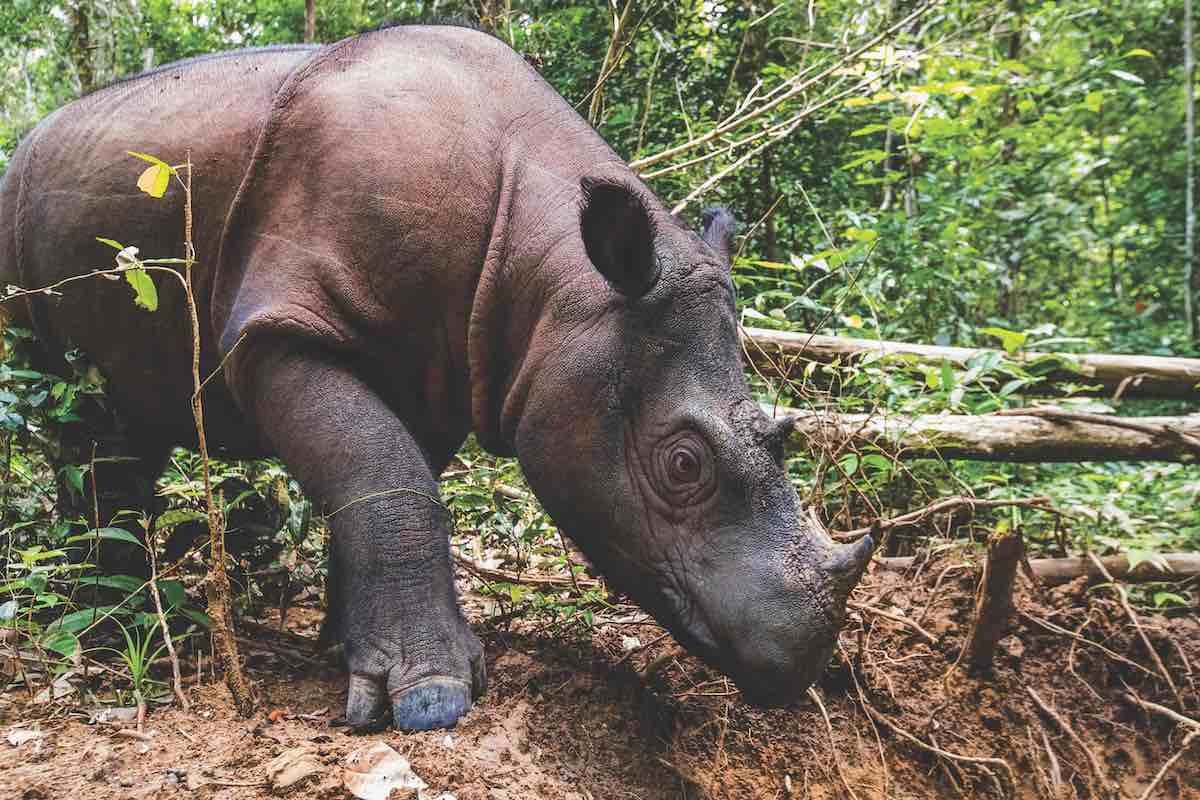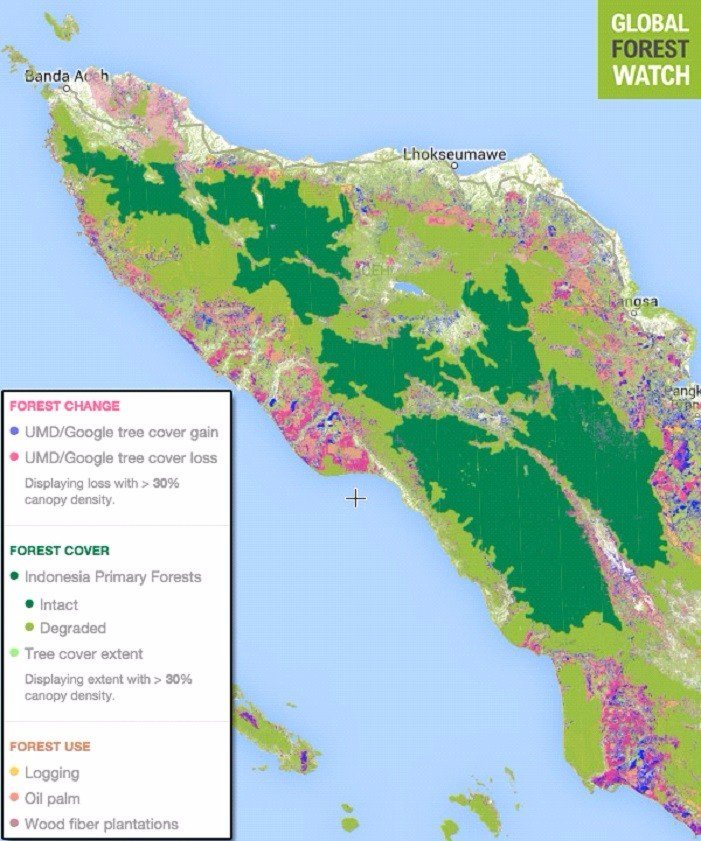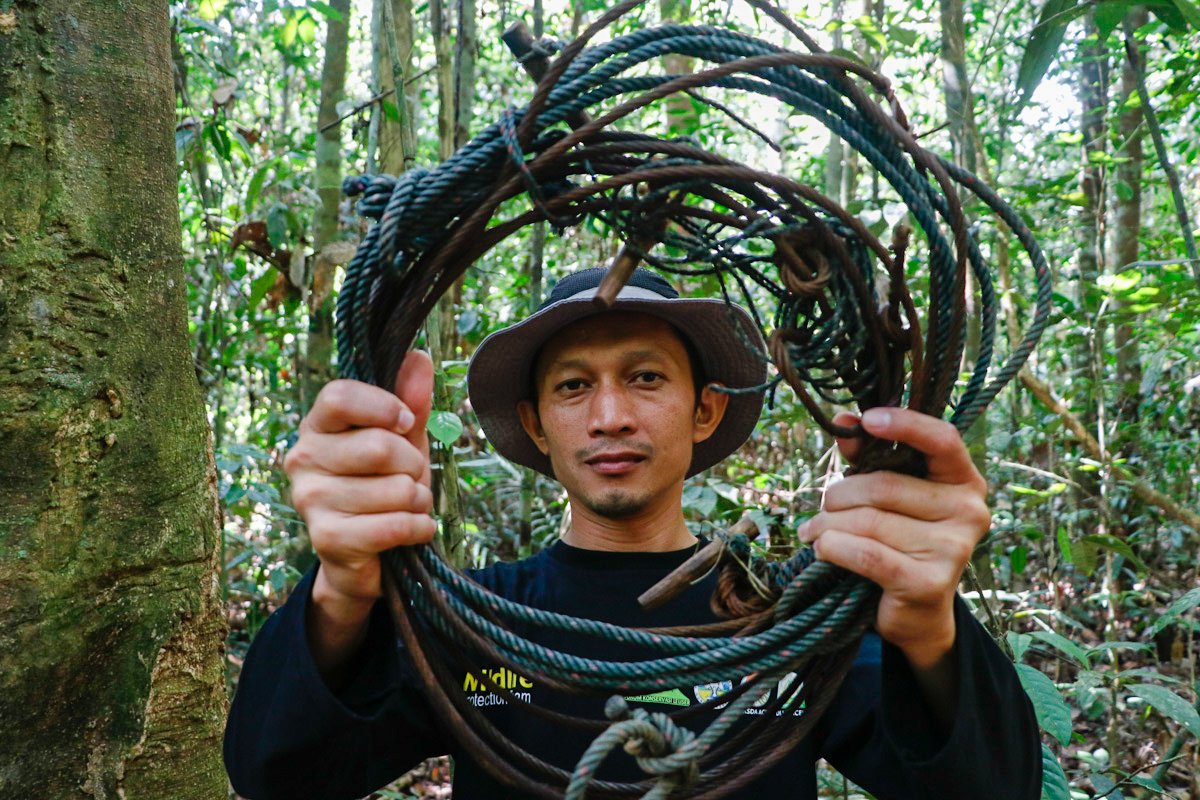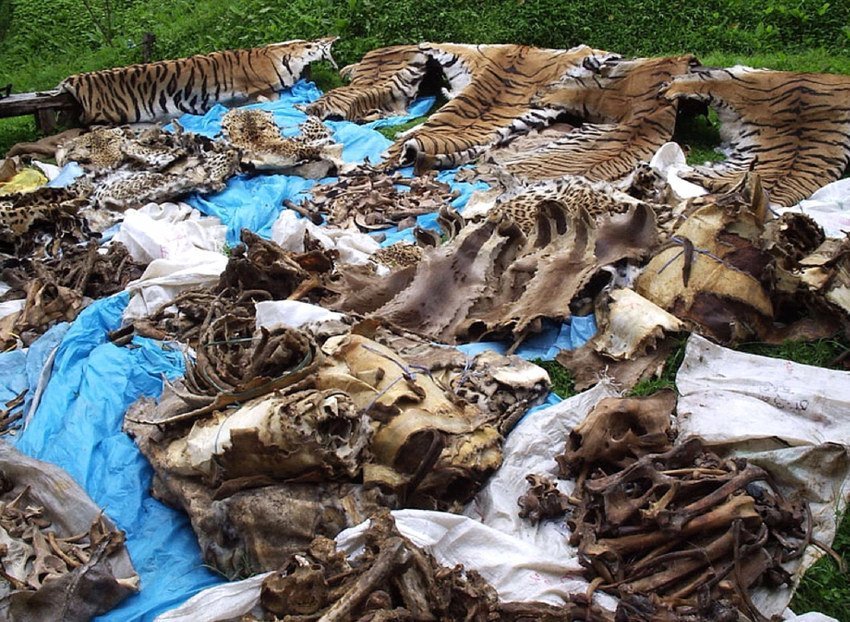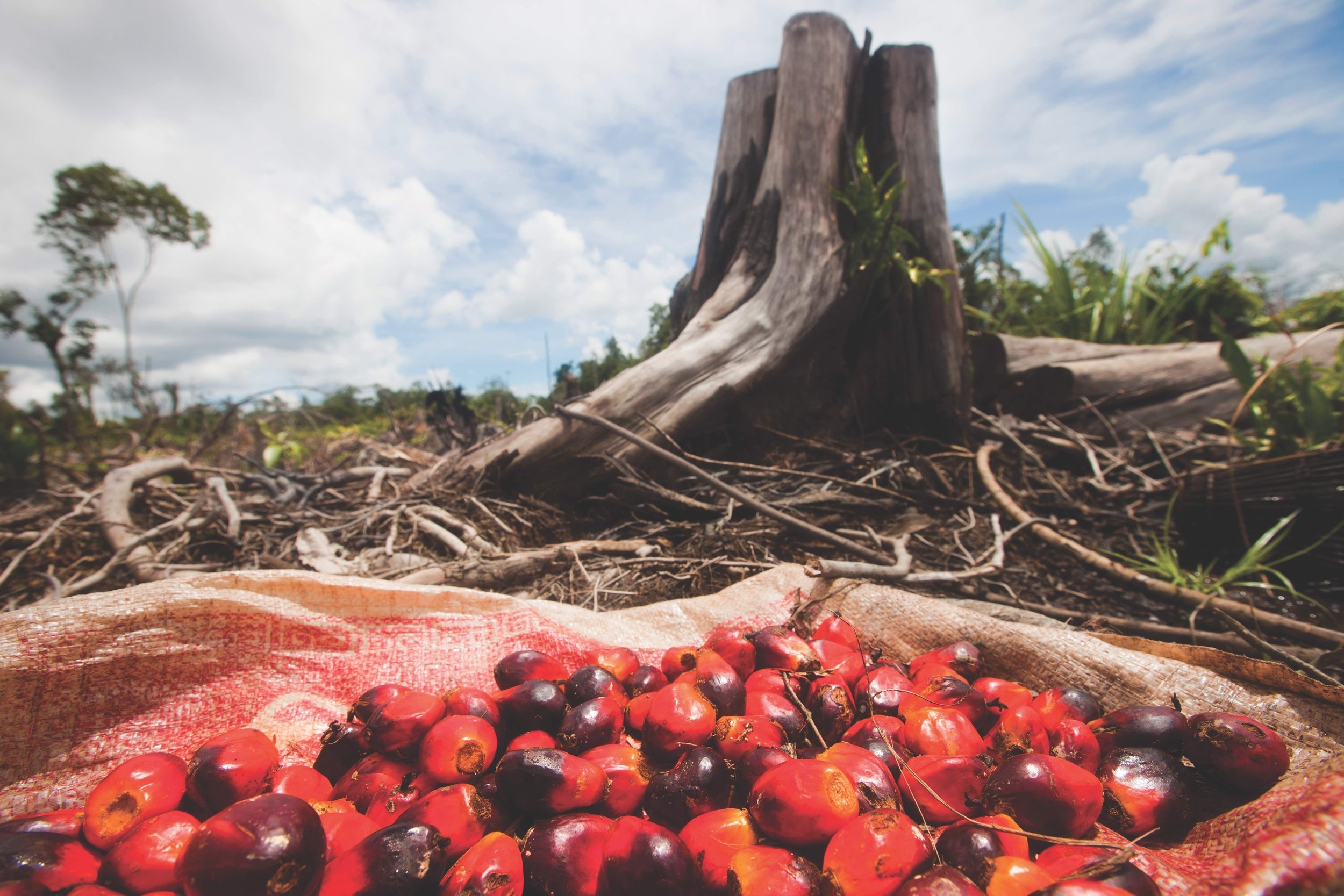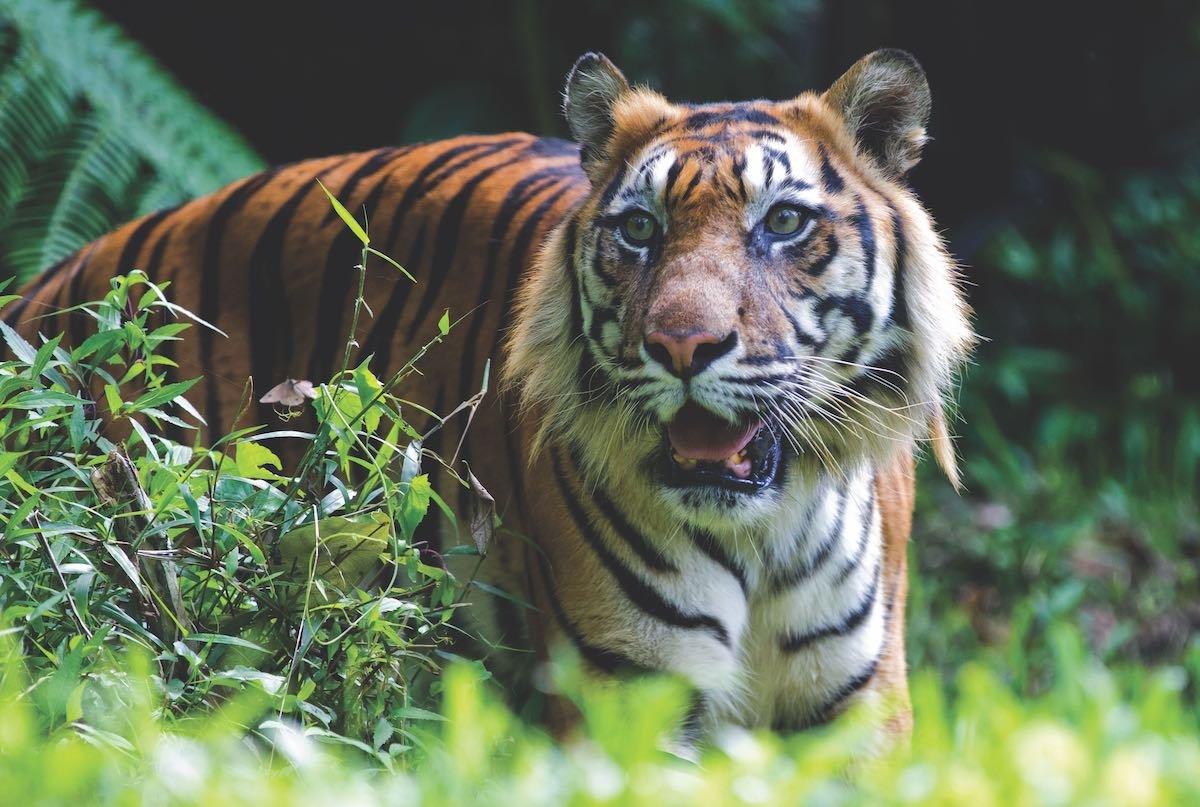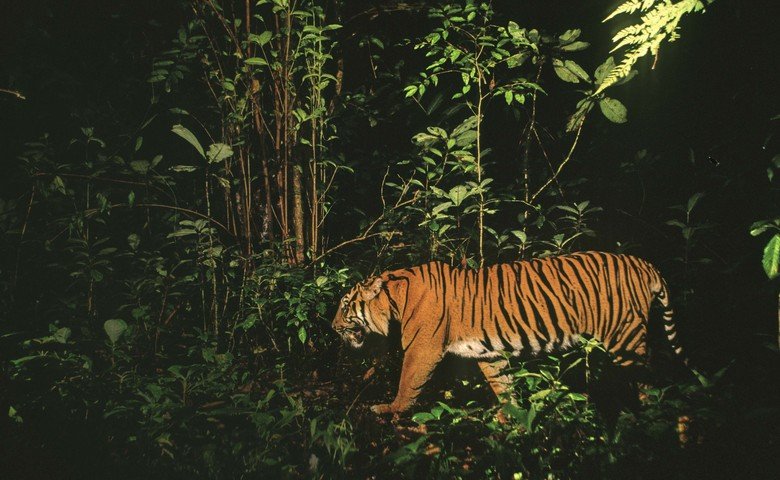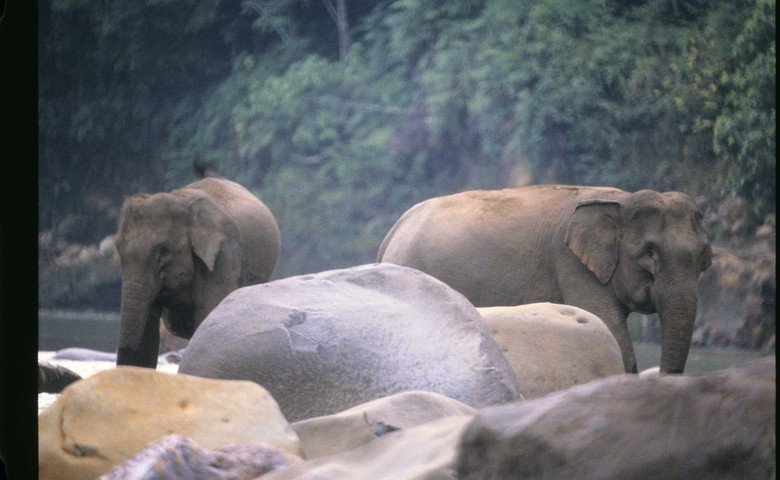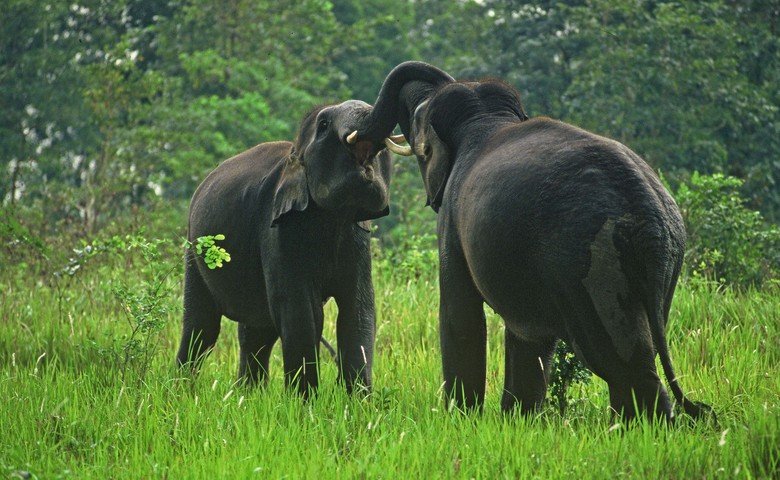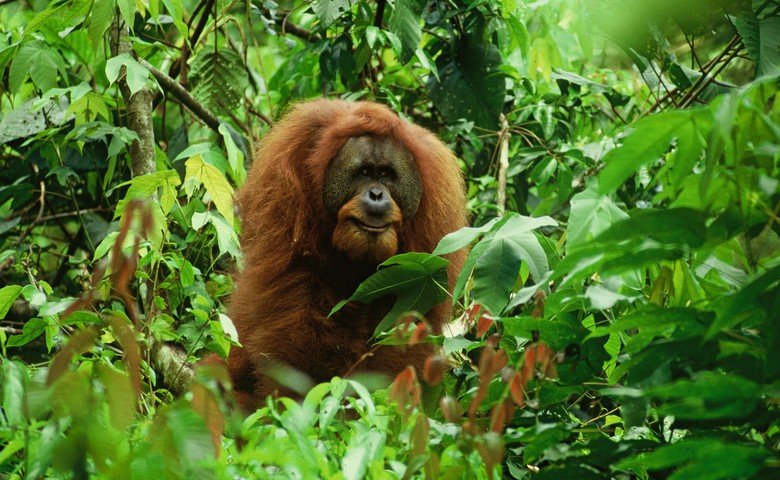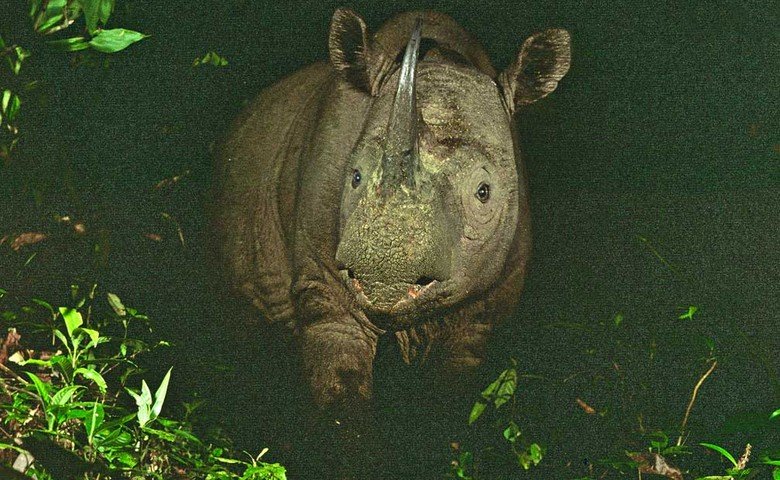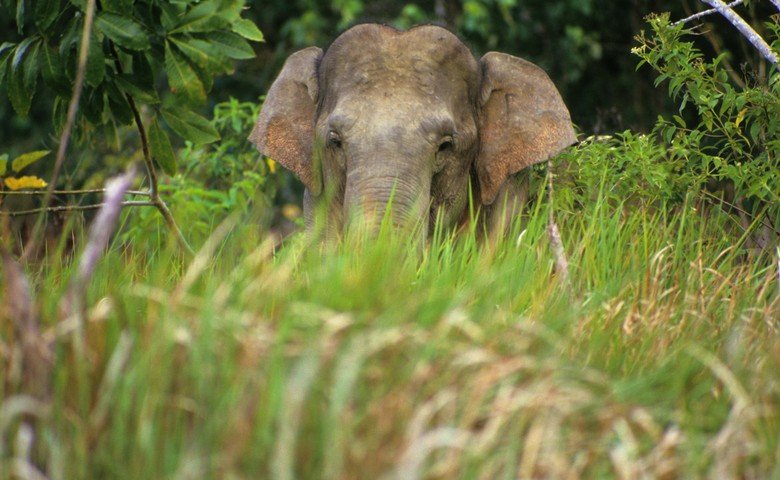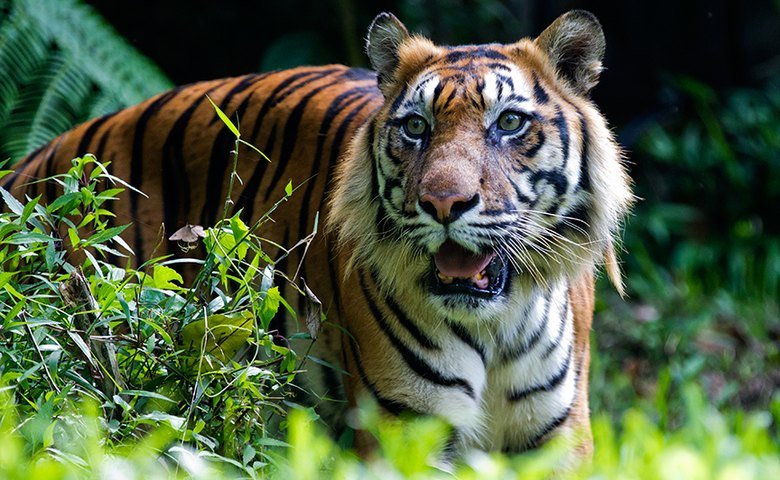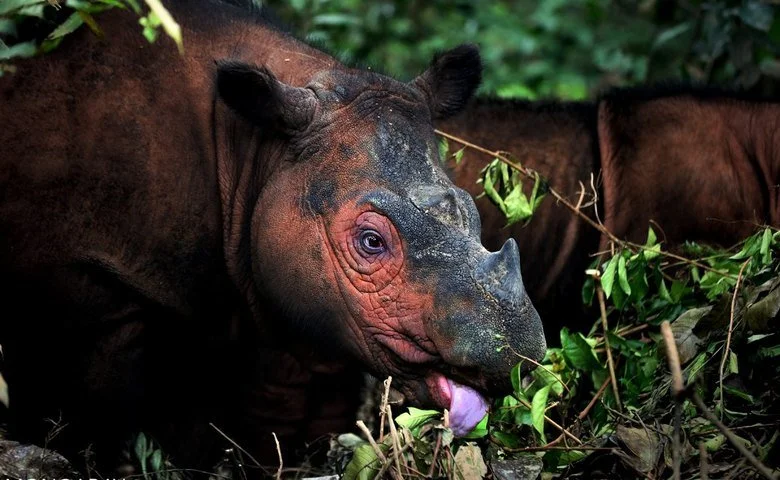Leuser Ecosystem, Sumatra, Indonesia
OVERVIEW
There's just one place left on earth where tigers, elephants, orangutans, and rhinos live together in the wild: the Leuser Ecosystem World Heritage Site on the Indonesian island of Sumatra.
Global Conservation is working to save this UNESCO World Heritage Site from pressures like poaching, logging, and illegal palm oil plantations.
SIZE
1,200,000 Hectares
GOAL
$840,000
VISITORS BY 2030
7,500
Introduction
There's just one place left on earth where tigers, elephants, orangutans, and rhinos live together in the wild: the Leuser Ecosystem World Heritage Site on the Indonesian island of Sumatra.
The Leuser Ecosystem spans 2.6 million hectares (6 million acres), almost three times the size of Yellowstone National Park. Its diverse landscape includes lowland and montane rainforests, nine rivers, three lakes, and over 185,000 hectares of carbon-rich peatlands. One of the last remaining intact rainforests in all of Indonesia, it is a crucial source of clean drinking water and agricultural livelihoods for over four million people.
The ecosystem services provided by the Leuser Ecosystem, including 1.6 billion tons of carbon and the provision of water to 4 million people, are valued at over $600 million annually.
Threats to the Leuser Ecosystem
Leuser is highly endangered, with threats accelerating since the end of the Acehnese rebellion and civil war. Post-war stability is bringing rapid invasion of commercial interests in palm oil, rubber, and logging, with companies legally and illegally deforesting the Leuser Ecosystem at astounding rates.
These forests are being burned to the ground. Between 1985 and 2009, half of Sumatra’s forests were destroyed. The decimation continues today; despite its protected status, Leuser has lost one-fifth of its lowland forests to illegal commercial activities in just the past five years. At that rate, the forest will be completely destroyed within two decades.
The primary threat to this unique ecosystem is illegal palm oil expansion. As global demand for palm oil rises, oil palm growers seek to multiply the acreage of this valuable crop. Unfortunately, there is little unoccupied land left in Indonesia, leading growers to encroach illegally into the country’s dwindling but exceptionally biodiverse protected areas.
Consequently, the Leuser Ecosystem has been designated a UNESCO World Heritage Site in Danger. In addition to palm oil, it faces accelerating threats by illegal and commercial interests in logging, mining, ill-advised energy projects, and the fragmentation of forests by new roads. The fires from this widespread destruction have caused major haze pollution from Singapore to Jakarta, resulting in huge economic losses and public health issues.
Leuser Megafauna in Danger
Due to this destruction, Sumatra’s unique megafauna species are dying out. Of the world’s 80 remaining wild Sumatran rhinos, Leuser contains 50—the last viable population of this species on Earth. Of just 400 remaining Sumatran tigers, more than 100 live in Leuser, which is one of only two regions with enough breeding females to sustain this subspecies. Finally, 85% of the world’s critically endangered Sumatran orangutans call this forest home. As Sumatra’s forests disappear, it becomes increasingly likely that Sumatran orangutans will become the first great ape to go extinct. All of this has led conservationists to call Leuser one of the “world’s most irreplaceable protected areas” – if this forest disappears, these species will go with it.
Conservationists call Leuser one of the "world's most irreplaceable protected areas."
Saving Leuser
Global Conservation and our partners are raising critical funding to protect and sustainably develop the Leuser Ecosystem to enable permanent “No Cut, No Kill” protection. The next three years are pivotal for establishing legal and institutional protections. Our work over the next three years is focused on wildlife habitat protection, removal of illegal plantations and logging operations, SMART ranger patrols and lobbying and legal actions to enforce Leuser Ecosystem’s existing protection as a national park and UNESCO World Heritage site. Strong local partners and international support are needed to reverse accelerating threats facing Leuser’s core forests and wildlife habitats.
These funding efforts are also enabling Global Conservation to employ Global Park Defense systems in Leuser. These systems include expanded ranger stations and patrols, UAV drones, satellite communication and remote monitoring.
Currently, 12 SMART Patrols cover 60% of the Leuser Ecosystem, equipped with satellite communications, survival equipment, and critical supplies. Forum Konservasi Leuser (FKL) Patrols target the areas at highest risk for forest and wildlife crime activities, especially areas with high value trees. Vital orangutan habitats within Gunung Leuser National Park are being documented by UAV drones. The video captured by the drones is invaluable for motivating community leaders and law enforcement to take action when threats are detected.
Finally, Global Conservation is providing the funding to set up the new 400,000-hectare Benkung Trumon Wildlife Sanctuary for Sumatran tigers, elephants, orangutans and rhinos. By protecting the habitat of these four megafauna species, countless other biological treasures will be preserved: clouded leopards, hornbills and the largest flowers in the world are among the wonders that share this forest. With our local partners, we will ensure that this irreplaceable wilderness continues to protect wildlife found nowhere else in the world, while providing crucial ecosystem services to the Sumatran people.
Global Conservation Progress: The Past 3 Years
In the past three years, despite accelerating threats, Global Conservation and its partners have had some major successes:
Building two new local NGOs with over 140 field staff for conservation and patrols
Stopped a major road building plan - ‘Roads to Nowhere’
Closed 24+ illegal plantations, 36 illegal logging operations and restored 30+ illegal palm oil plantations to natural forest
Deploying 100+ strong anti-poaching patrols and multiple arrests
New wildlife-focused conservation programs for rhino, tigers, orangutan and elephants including establishment of a new megafauna sanctuary
International lobbying securing support from EU, USA, and other nations
National recognition and public petitions with over 1.1 million signatories
Securing new funding from Leonardo DiCaprio Foundation, others
Establishment of major new wildlife corridors and buffer areas
Critical Initiatives
Global Conservation is sponsoring four critical initiatives in 2016-2018 to assist with permanent protection of the Leuser Ecosystem:
Stop Aceh Governor’s Revisions to the Aceh Spatial Plan
We are empowering local communities with legal support, professional lobbying and investigative journalism to stand up and reject the wholesale give-away of the Leuser Ecosystem proposed by the current Aceh governor and his corrupt officials. The latest revision proposed by the Aceh Governor has been rejected by both the Ministries of Forestry and Home Affairs. Through a petition with 1.2 million signatures, the Acehnese people have demanded a better pro-conservation and pro-development spatial plan and approach.
Habitat Acquisition and New Protection for Core Wildlife Areas
There are 6 important core areas for wildlife in Leuser that need special support. Land acquisition, demarcation, informant reward systems, and advanced surveillance protection networks for these core areas are the highest priorities.
Closing Illegal Palm Plantations and Restoring Forests
We need to send a signal to major and minor palm oil producers that Leuser is off limits to illegal plantations, mining and logging. Our goal is to close 5-6 illegal encroachments and restore over 20,000 hectares (50,000 acres) of critical orangutan and elephant habitat and corridors.
SMART Ranger Patrols
Provide wildlife protection training, equipment, rations and technical support to the national park rangers to implement SMART patrols, increasing coverage, accountability and interdictions of illegal activities.
Global Conservation’s initial three year program will nearly triple the funds available for Leuser conservation. We will enable a $10-20 million investment by the European Union and other national governments, multi-lateral agencies, major foundations and other donors to ensure the Leuser Ecosystem’s permanent protection.
With the right strategy, planning, team, and national and international support, Leuser Ecosystem can be well managed to support both development and conservation. Well-placed, legal palm oil plantations can act as buffer areas to the critical wildlife habitats and corridors, while ensuring the future security of food, water and employment for 4.7 million Acehnese whose livelihoods depend on the Leuser Ecosystem.
The Opportunity
There is major untapped tourism potential for Leuser as an international destination being only 2 hours from Singapore and Kuala Lampur, and 3 hours from Hong Kong. Over 160 kilometers of coastline and 4 diverse ecosystems provide an authentic wilderness and wildlife experience with fishing, boating, trekking, wildlife viewing, beaches, rafting, birding and mountain lodges. The European Union and the Government of Indonesia have already sponsored $18 million for construction of six new airports in and around Leuser for easy transport between sectors.
Species Facing Extinction
In the Leuser Ecosystem, we are working with our partners to protect the Sumatran rhino, Sunda clouded leopard, and Sunda pangolin.
Global Conservation is funding a multi-year Species Population Baseline study for these species to ascertain progress in Park and Wildlife Protection from our investments in Global Park Defense in the Leuser Ecosystem.
As few as 30 Sumatran rhinos survive in the wild, making them one of the rarest, most endangered mammals in the world. The largest surviving population is found in the Leuser Ecosystem, an area of rainforest located in northern Sumatra of more than 2.5 million hectares. The main threat to the Sumatran rhino is habitat loss, since its habitat has been converted from forests to areas used for agriculture (including palm oil), cattle pastures, and logging.
There are two species of clouded leopard in the world, and GC sites have both of them! Just a few thousand individuals of both clouded leopard species remain across their ever-shrinking range in Asia. Illegal hunting for their skins and other body parts, habitat fragmentation due to human developments, and a lack of effective conservation efforts has led these animals to be listed as Vulnerable. Just 3,700-5,580 clouded leopards and 4,500 Sunda clouded leopards remain in the world.
So few of these mysterious animals remain that scientists have been unable to estimate their population. Sunda pangolins are one of the world's most trafficked mammals. Over a million pangolins worldwide are estimated to have been poached from the wild since 2000, and they are predicted to decline by an additional 80% within the next two decades if they are not protected. GC is working across five national parks and World Heritage Sites in Asia to help save this critically endangered species.
Partners in Conservation
Three key partners in Leuser are organizing the primary front in the battle to save Leuser:
Led by Rudi Putra, a Goldman Environmental Awardee (2014) and Mike Griffith, FKL has over a 140-strongfield team patrolling and working with local communities and law enforcement to stop illegal wildlife poaching, palm oil plantation and destructive logging.
FKL's activities include:
Management planning
Surveying and mapping
Monitoring and enforcement
Forest restoration
Participation of local communities/public awareness
Regulation of carbon credits
Sustainable financing
Conflict resolution
Legislation, policies and zoning
Rehabilitation of degraded areas
Mitigate human- wildlife conflicts
Mitigate impacts of new infrastructure development
We are funding the RAN Palm Oil Team in Asia to analyze, monitor and lobby against expansion of illegal palm oil production in Sumatra and Papua. RAN has been working since 2013 to expose the corporate supply chains that link the products on our grocery shelves to unsustainable and destructive palm oil practices, like the illegal palm oil plantations in and around Leuser. Through determined campaigning, RAN has gotten major corporations like PepsiCo to change their palm oil policies.
HaKA (Forest, Nature and Environment of Aceh)
Based in Banda Aceh, HaKA is working on legal action, stakeholder coordination, public relations and petition drives that have garnered over a million signatures supporting protection of the Leuser Ecosystem.
Wildlife Conservation Society (WCS)
Global Conservation is supporting establishment of SMART Patrols for Gunung Leuser National Park led by WCS training.


